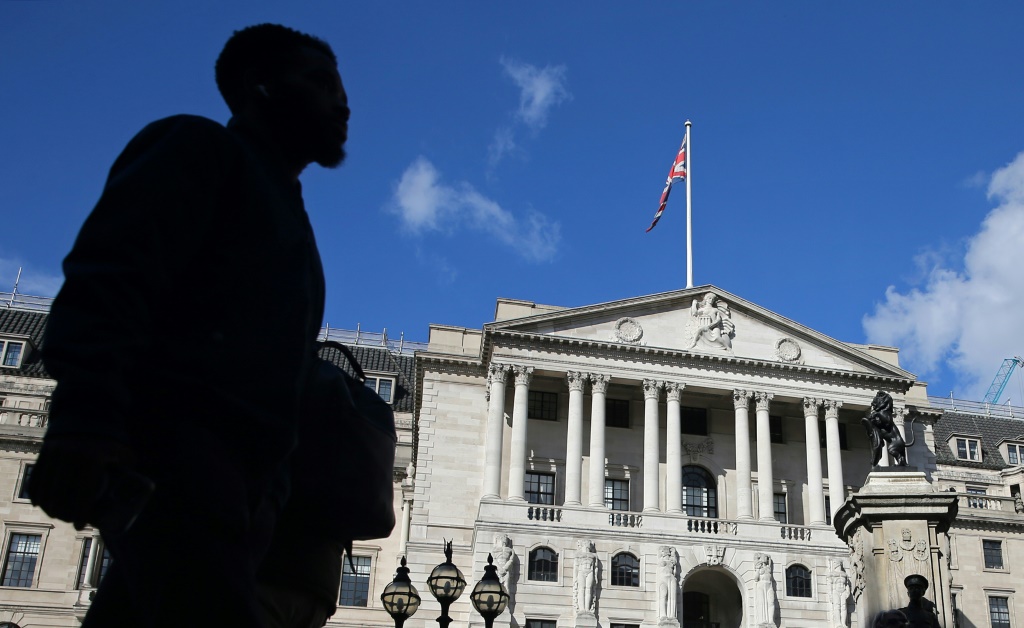BoE fails to reassure over emergency intervention

Source: AFP
PAY ATTENTION: Сheck out news that is picked exactly for YOU ➡️ find “Recommended for you” block on the home page and enjoy!
The Bank of England on Wednesday insisted it would end emergency buying of UK bonds by the weekend but sent markets into further frenzy as economic uncertainty grips Britain.
The BoE launched a bond-buying drive in late September aimed at quelling market turmoil triggered by an uncosted budget unveiled by the government of new Prime Minister Liz Truss.
Following a Financial Times report on Wednesday that the BoE could extend its buying of UK government debt, the central bank insisted it would end purchases of long-dated bonds on Friday.
Amid all the uncertainty, the yield on Britain's 30-year bond, or gilt, rose back above five percent and close to a 24-year peak.
"As the bank has made clear from the outset, its temporary and targeted purchases of gilts will end on 14 October," the BoE said.
"Governor (Andrew Bailey) confirmed this position... and it has been made absolutely clear in contact with the banks at senior levels."
PAY ATTENTION: Enjoy reading our stories? Join YEN.com.gh's Telegram channel for more!
The BoE noted, however, that measures to boost liquidity would remain in place beyond Friday.
The bank has jumped into bond markets to protect financial stability after yields rocketed and the pound tumbled to a record dollar-low following Britain's tax-slashing budget.
In particular, the BoE feared for British pension funds that invest in traditionally low-volatility state bonds.
Speaking on the sidelines of an International Monetary Fund gathering in Washington, Bailey on Tuesday confirmed that pension fund managers had "three days left" until the bank's bond purchases ended.
"We think the BoE has put itself in a no-win situation," said Matthew Ryan, head of market strategy at financial services firm Ebury.
"Either Bailey is forced to backtrack on his pledge and extend intervention beyond Friday, potentially damaging the bank's credibility, or end the measures as planned and risk another blowout in gilt yields."
'Bank sector resilience'
Separately, the BoE on Wednesday judged that Britain's banks were "substantially more resilient" than before the 2008 global financial crisis thanks to strong capital and liquidity.
Nevertheless, the BoE this week launched a temporary facility aimed at easing liquidity pressures that arose after the UK budget shocked markets.
The BoE's Temporary Expanded Collateral Repo Facility allows "banks to help to ease liquidity pressures facing" client funds beyond the end of this week, it said on Monday.
In volatile trading on Wednesday, the pound rallied above $1.10 as markets price in more aggressive interest-rate hikes from the BoE to try and cool decades-high inflation.
Official data on Wednesday showed an unexpected 0.3-percent contraction in the UK economy in August on surging prices.
The BoE's emergency programme had offered to buy up to £65 billion ($72 billion) in long-dated bonds, although the current total is far below the limit.
On Tuesday, it widened the scope of its daily purchases of government bonds, or gilts, to include debt linked to the UK inflation rate, currently at around 10 percent.
In a bid to address markets chaos, finance minister Kwasi Kwarteng has brought forward UK growth and inflation forecasts to October 31, when he will also unveil plans to reduce debt.
His budget included a costly freeze on energy prices as millions of Britons struggle with a cost-of-living crisis.
But the International Monetary Fund and ratings agencies have warned that the budget would cause UK government debt to balloon.
Fitch last week lowered the outlook on its credit rating for British government debt to negative from stable.
The BoE has piled on further pressure by ramping up its main interest rate to a 14-year high of 2.25 percent in a bid to cool inflation -- and is expected to hike even further next month.
New feature: Сheck out news that is picked for YOU ➡️ find “Recommended for you” block on the home page and enjoy!
Source: AFP



